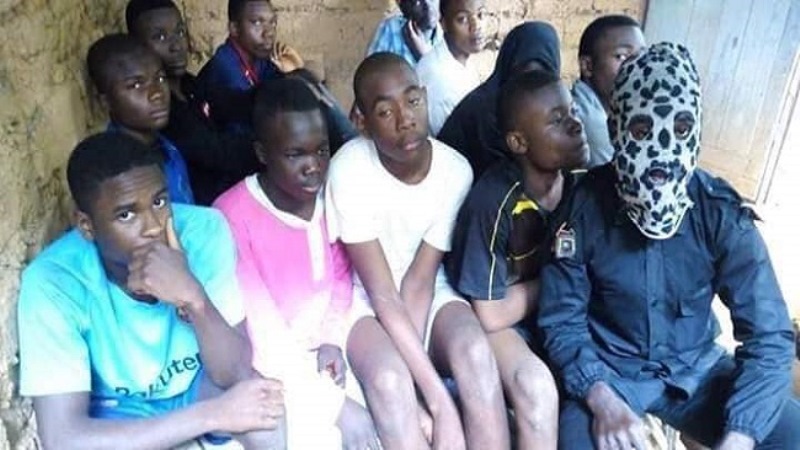By Andrew Nsoseka, JADE
One of the setbacks of the Anglophone Crisis has been campaigns against the right to education, which is an established human right, as enshrined in article 26 of the Universal Declaration of Human Rights and Article 17(1) of the African Charter on Human and People’s Rights.
When the Anglophone Crisis started, with teachers joining lawyers in their 2016 protests, school boycott was employed to force the Government to the negotiation table.
Many leaders, who later advocated for the right of children to be educated, stated that school boycott was simply a short term measure.
However, some separatist leaders embraced the anti-school campaign, depriving thousands of children in areas where schools could practically operate.
On October 24, 2020, seven children were killed at the Mother Francisca International Bilingual Academy in Fiango, Kumba. On November 3, pupils from Presbyterian School, PS, Kumbo were dispersed by gunmen from their school.
Eleven teachers of the school were also abducted. Also, within the same time frame, a group of armed men attacked Kulu Memorial College in Limbe, where teachers and some students were coerced and stripped naked.
Some school items and structures were set on fire. These are just some of the anti-school campaigns that have generally instilled fear in the hearts of parents and learners.
While some separatist leaders and fighters have agreed that children, where possible, should be allowed to go to school, some have still sustained anti-school rhetoric, thus bolstering some fighters to carryout anti-school attacks.
One thing, though, that needs to be pointed out is some of the anti-school attacks are hardly ever investigated to unveil the culprits. As such, words like unidentified gunmen or suspected separatist fighters have been used, and sometimes, the fighters have denied responsibility.
The Universal Declaration of Human Rights, among other provisions that protect the right to education, also states, in its article three, that “Everyone has the right to life, liberty and the security of person.” It also states in its article five that, “No one shall be subjected to torture or to cruel, inhuman or degrading treatment or punishment”, which some students and teachers have been subjected to.
In its article 26(1), it states that “Everyone has the right to education…”
Similarly, the African Charter on Human and People’s Rights, alongside its provisions for the respect of the dignity of persons, also says in its article 17 (1) that every individual shall have the right to education.
The Proprietor of Kulu Memorial College, Limbe, Duala Njie, one of the recently attacked schools, told The Post on Friday, November 13, that both the Government and the school authorities have put in place ample security measures to, henceforth, guarantee the safety of all students and staff.
He said, while the school employed security guards, the administration has agreed to provide security personnel to protect the school.
Samah Abang-Mugwa, a teacher, and LLM candidate remarked that he has since advocated that the “No School” strategy was, is, and shall always be counter-productive.
“The greatest regret is that some forces are still blindly clinging onto it, albeit the national and international outcry and mobilisation against it. We are talking of at least four wasted, lost, dwarfed and forgotten generations.”
Sama regrets that some actors in the conflict still see nothing wrong with preventing children from going to school. “We cannot over-emphasise the damage the blockade is having on small village economies, the school industry, the social fabric of the nation as a whole, be it long-term and short-term,” he said.
In a reaction to the Kumba school killings, the Minister of Communication, Emmanuel Rene Sadi, in explaining why the Government failed to protect the students, said “Mother Francisca International Bilingual Academy,” only launched its activities at the start of the 2020/2021 school year, without the knowledge of the competent administrative authorities and could not benefit from the same security measures enjoyed by other schools in the Meme Division.” It was, however, debunked because the school has been functioning before the crisis.
After several years of supporting school boycott and anti-school campaigns, one of the very vocal separatist leaders, Mark Bareta stated that “school boycott is no longer a weapon of our struggle for independence. Thus, where possible Ambazonia forces should allow education and even encourage schools going”, he said.
Other leaders too have generally supported the resumption of schools, and even encouraged the community school initiatives spearheaded by religious bodies. However, some fighters still target and vent out anti-school rhetoric.
